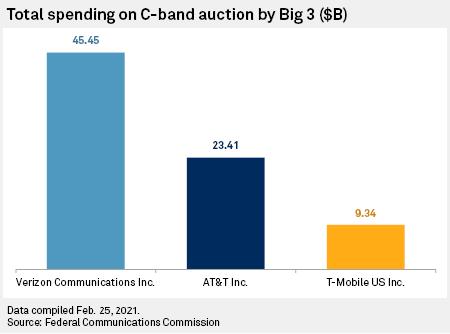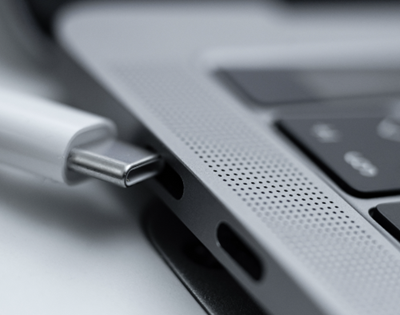AT&T and Verizon Now Rolling Out C-Band 5G Spectrum
Following weeks of delays due to concerns from the aviation industry, Verizon and AT&T were today able to begin deploying C-Band 5G spectrum to improve the availability of 5G connectivity for users across the United States.
AT&T's C-Band spectrum is live in limited parts of eight metro areas that include Austin, Chicago, Dallas Ft. Worth, Detroit, Houston, Jacksonville, Orlando, and South Florida. AT&T is taking a careful approach to the rollout, but the carrier says that C-Band spectrum will "expand rapidly" as part of a ramp up in its "thoughtful and efficient deployment." iPhone users who have access to AT&T's C-Band network or previously existing mmWave connectivity will see a "5G+" indicator in the iPhone's cellular status bar.
As for Verizon, the company earlier this month announced plans to expand its 5G Ultra Wideband service to 1,700 cities later in January, and that expansion started today with the launch of C-Band spectrum. Verizon users on Reddit are sharing details on where Verizon's 5G connectivity has suddenly improved, noting the locations where C-Band connectivity is live. Verizon users will see a "5G UW" indicator.
There are reports from across the country, including Los Angeles, Nashville, Salt Lake City, Chicago, Minneapolis, Rochester, and many other smaller cities. Verizon said that it expected the C-Band rollout to bring faster 5G speeds to more than 100 million people, but has not yet shared a C-Band coverage map.

AT&T's 5G+ and Verizon's 5G Ultra Wideband are up to 10x faster than LTE speeds and can hit upwards of a gigabit per second.
Verizon and AT&T are both limiting their C-Band deployment in areas that are near airport runways to give airlines and the FAA more time to figure out whether there are issues with airplane altimeters.
Earlier this week, major U.S. airlines penned an urgent letter warning that the 5G rollout could cause a "catastrophic" crisis resulting in cancelled, delayed, and diverted flights.
The FAA has implemented buffer zones around 50 major airports with wireless transmitters close to runways, but for the time being, AT&T and Verizon will block off a two mile zone around affected airports to address concerns.
Airlines and the two carriers have expressed frustrations over the FAA's lack of action, as the agency has had years to prepare. C-Band spectrum went up for auction in late 2020, with Verizon paying $45 billion and AT&T paying $23 billion for access.
"We are frustrated by the FAA's inability to do what nearly 40 countries have done, which is to safely deploy 5G technology without disrupting aviation services, and we urge it to do so in a timely manner," AT&T said in a statement.








